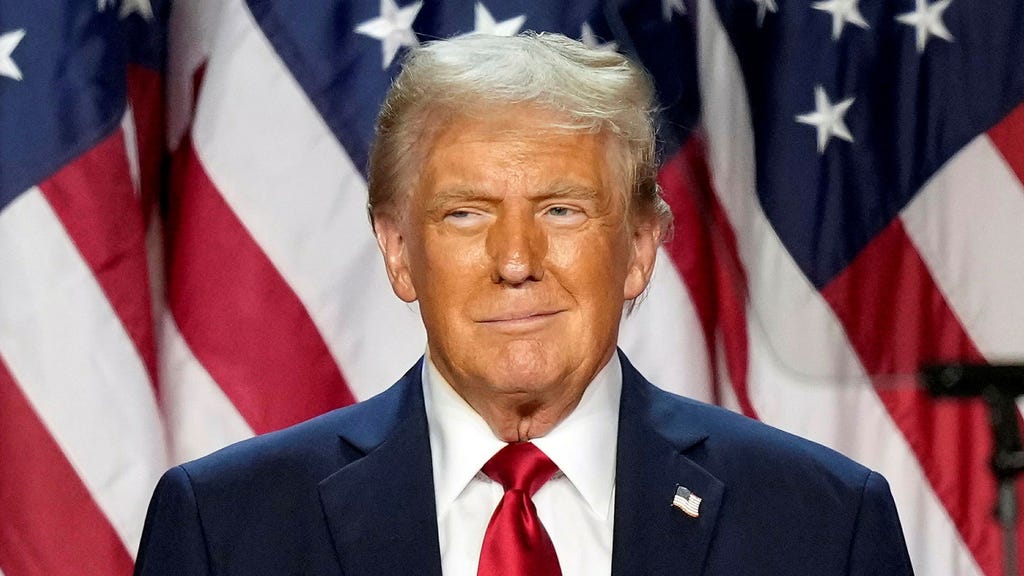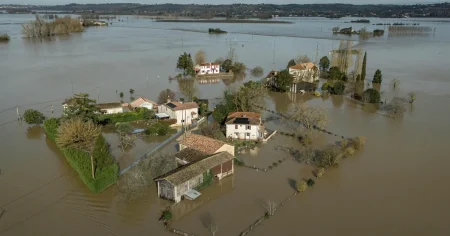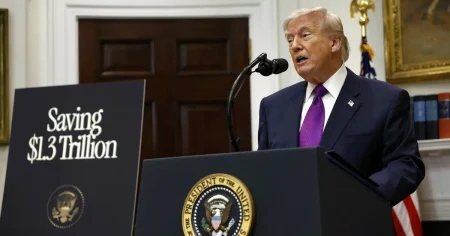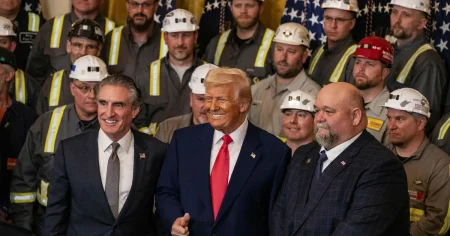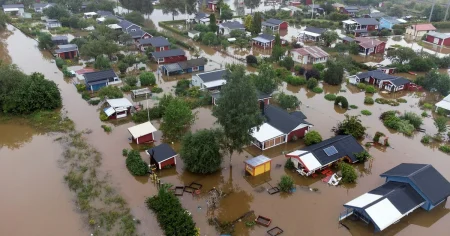The year 2024 has been a tumultuous one for the climate, marked by a relentless barrage of extreme weather events, including the devastating floods in Spain. A series of grim reports have underscored the inadequacy of global climate action, further fueling a sense of despair. Investments in green technologies, such as battery factories, wind farms, and sustainable fuels, seem to be stalling, leading many to believe that the battle against climate change is already lost. This sentiment is amplified by the return of Donald Trump to the US presidency, a figure who has vowed to prioritize oil and gas production and withdraw the US from the Paris Agreement. While this paints a bleak picture, the situation might not be entirely hopeless. A deeper analysis reveals a more nuanced reality, suggesting that a Trump presidency, while certainly not ideal, might not be the absolute catastrophe for the climate that some fear.
The United States, the world’s second-largest greenhouse gas emitter, is unlikely to see a significant shift in its emissions trajectory under Trump. However, it’s crucial to note that emissions haven’t drastically changed under Biden either. Despite his administration’s focus on climate action, Biden, along with Vice President Kamala Harris, approved more new oil and gas projects than Trump did during his previous term. The Biden administration’s primary climate contribution was the Inflation Reduction Act (IRA), a massive investment package aimed at bolstering green industries. This very initiative is what Trump has pledged to dismantle, a threat that triggered a decline in solar energy stocks on US exchanges.
However, the feasibility of completely dismantling the IRA is questionable, as is Trump’s genuine commitment to doing so. The IRA has successfully attracted green investments to the US, creating jobs and garnering support from the business community. Crucially, and perhaps most significantly from Trump’s perspective, it has brought jobs back from China to the US. The EU, on the other hand, views the IRA with less enthusiasm, concerned about the potential exodus of European companies seeking to capitalize on US subsidies. This has spurred a transatlantic competition in green subsidies, with the EU scrambling to devise countermeasures to retain investments. Essentially, Biden’s IRA has ignited a global race towards green technologies, a momentum unlikely to dissipate entirely under Trump.
Furthermore, Trump’s past pronouncements on coal offer a glimpse into his potential actions. Despite his campaign promises in 2016 to revive the coal industry, 75 coal-fired power plants closed and 13,000 coal jobs were lost during his presidency. This track record suggests that his current rhetoric might not translate into concrete action. His pronouncements about dismantling the IRA might similarly fade into inaction. The underlying reason for this potential shift is a fundamental economic transition. While Trump’s rhetoric clings to fossil fuels, the market forces are increasingly favoring green technologies, attracting investments and creating jobs.
Several US states have recognized this shift, forming the US Climate Alliance after Trump’s 2016 victory. This coalition, encompassing 24 states and representing over half of the US population and economy, is committed to upholding the Paris Agreement, regardless of federal policy. Adding to this dynamic is Elon Musk’s prominence in Trump’s post-election acknowledgements. Musk’s repeated mentions suggest a possible softening in Trump’s stance towards green industries. While this doesn’t imply a complete reversal, it indicates a potential pragmatism driven by economic realities.
While these factors offer a glimmer of hope, they don’t absolve the rest of the world from responsibility. The onus is now on other nations to step up their climate commitments and fill the leadership void potentially left by the US. Paradoxically, the US’s potential absence from global climate negotiations could facilitate stronger agreements among other nations, unburdened by the need to accommodate US interests. The upcoming UN climate summit in Baku, Azerbaijan, will provide crucial insights into the direction of global climate action in this new political landscape. The summit will be a test of global resolve, revealing whether nations are prepared to accelerate their efforts in the face of US uncertainty. The global community must capitalize on the momentum created by the green technology race and strive to meet the Paris Agreement goals, even without full US participation.





